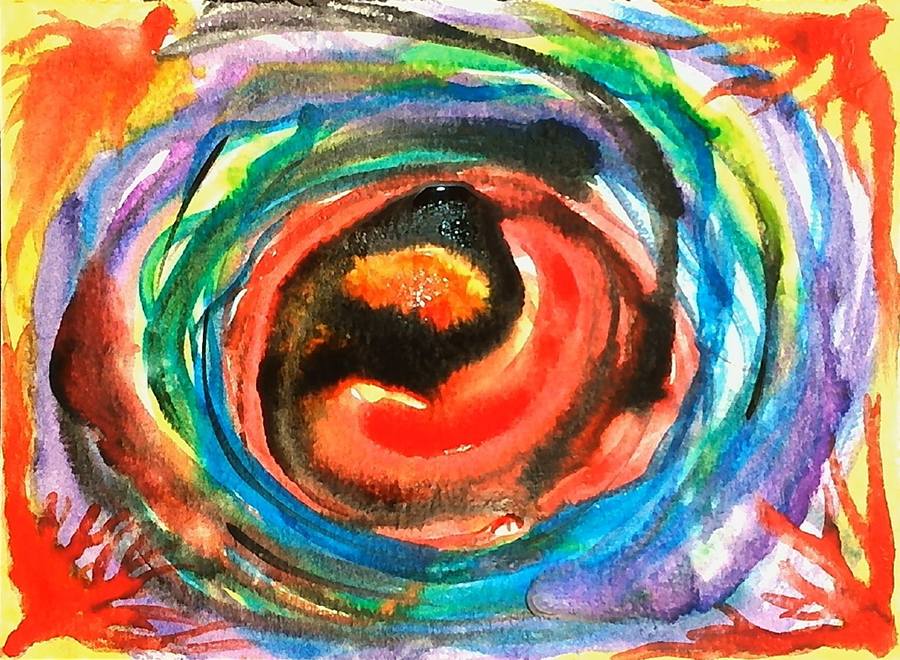
A Florida State University program that provides art therapy to adult inmates with special needs has undergone a major expansion through a renewed contract with the Florida Department of Corrections.
Since January 2020, a groundbreaking partnership between FSU’s Art Therapy Program and the Florida DOC has provided young adult inmates with special needs and obstacles the opportunity to earn their General Education Degree (GED) while also addressing topics such as mental health and emotional and behavioral challenges through art therapy.
“This project is a prime example of the potential art has to support and to effect positive change in peoples’ lives,” said James Frazier, dean of the College of Fine Arts. “The intersection of wellness and education is particularly satisfying in this endeavor. As society continues to look for alternative ways to address vexing issues, the success of this partnership is encouraging. The field of art therapy has a well-established history, nonetheless, this work is advancing and broadening what many consider to be the range of applications of art.”
The program was so successful that the university and the state negotiated a new, three-year contract that doubled the program’s size. Dave Gussak, a professor in the Department of Art Education and program coordinator for FSU/FDC Art Therapy in Prisons Program, previously worked with a team of two other therapists and five prisons. They have now added two additional therapists and four more prisons.
“This program has been so valuable, especially during this pandemic. For a population that already feels forgotten inside, the situation can turn dangerous. We are connecting and accepting them through art, and they are feeling the connection.”
— Dave Gussak, professor in the Department of Art Education and program coordinator for FSU/FDC Art Therapy in Prisons Program
“This program has been so valuable, especially during this pandemic,” Gussak said. “For a population that already feels forgotten inside, the situation can turn dangerous. We are connecting and accepting them through art, and they are feeling the connection.”
When the program began ramping up in early 2020, COVID-19 restrictions made face-to-face interactions with inmates difficult to arrange. For nine months, the program continued remotely by providing much-needed therapy to those inside with workbooks and handouts.
“The shift of the program’s goals and the focus of new processes and directives was to empower inmates, provide them an emotional outlet and mitigate their mounting anxiety and frustration while giving them a sense of connection during this even more extensively isolating period,” Gussak said.
Feedback from participants in the program has been positive. One reported, “I have been able to open up. I feel like I can trust you and that’s difficult to do.” Another said that the program “makes me feel like I can achieve something,” while another commented, “I have been able to open up more to myself and you. I can express myself better and have become more honest.”
Gussak has been involved in bringing art therapy into correctional settings for more than 30 years and has conducted various research studies in Florida correctional settings since arriving at FSU in 2002. Currently, he and his team are collecting data on the success of the program with hopes of seeing decreased disciplinary reports and increased control and focus from inmates who are participating.
“While art therapy is not new to prisons, this contract between FSU and the FDC is unusual as it hires credentialed art therapists to provide solely art therapy services,” Gussak said. “In most cases, art therapists are hired under different mental health titles and positions, requiring them to offer a myriad of services, sometimes leaving little room for art therapy.”
The therapeutic techniques help inmates establish a sense of identity and validation, Gussak said.
“Many of the directives suggested and materials used offer various mechanisms for expressing their anxiety and loss,” he said. “These, in turn, help address mental health and frustration tolerance while mitigating behavioral issues.”
Project co-investigators Casey Barlow and Evie Soape were the first art therapists hired by the new program to provide art therapy services within three men’s prisons and one women’s prison.
“Despite many obstacles — such as the pandemic — the program has already been able to demonstrate its value through data and qualitative narratives,” Barlow said. “The program also continues to inspire individuals by tapping into the illuminating, transformative and fulfilling experience of art making.”
A new member of the team, Michelle Torrech Pérez, said she is honored to assist in the program’s expansion.
“I remember hearing about the program and watching Dr. Gussak work hard to make it a reality when I was a student at FSU,” she said. “Now, I have come full circle and am excited to make a valuable contribution.”
Soape said it has been an adventure working with the team.
“It is amazing to watch how much the program has evolved in such a short time,” she said. “It is a privilege and an honor to bring the benefits of art therapy to this population.”
In addition to Columbia, Lowell, Marion and Suwannee Correctional Institutions and the Florida Women’s Reception Center, the program now services Charlotte, DeSoto, Holmes and Jackson Correctional Institutions.
“The Art Therapy in Prisons Project is a model for providing meaningful, adaptable, therapeutic services to a population in need of a productive, creative outlet,” said Anna Schubarth, special education programs administrator for the Florida Department of Corrections and the FDC administrator for this project. “I am honored to be a part of this project expansion and look forward to what the future may bring.”
The program is funded by an Individuals with Disabilities Education Act (IDEA) multi-year grant, ensuring it stays in prisons until at least 2024. Under the grant guidelines, participants in art therapy must be between the ages of 16 and 22 and a special education designee.
For more information, visit https://arted.fsu.edu/.